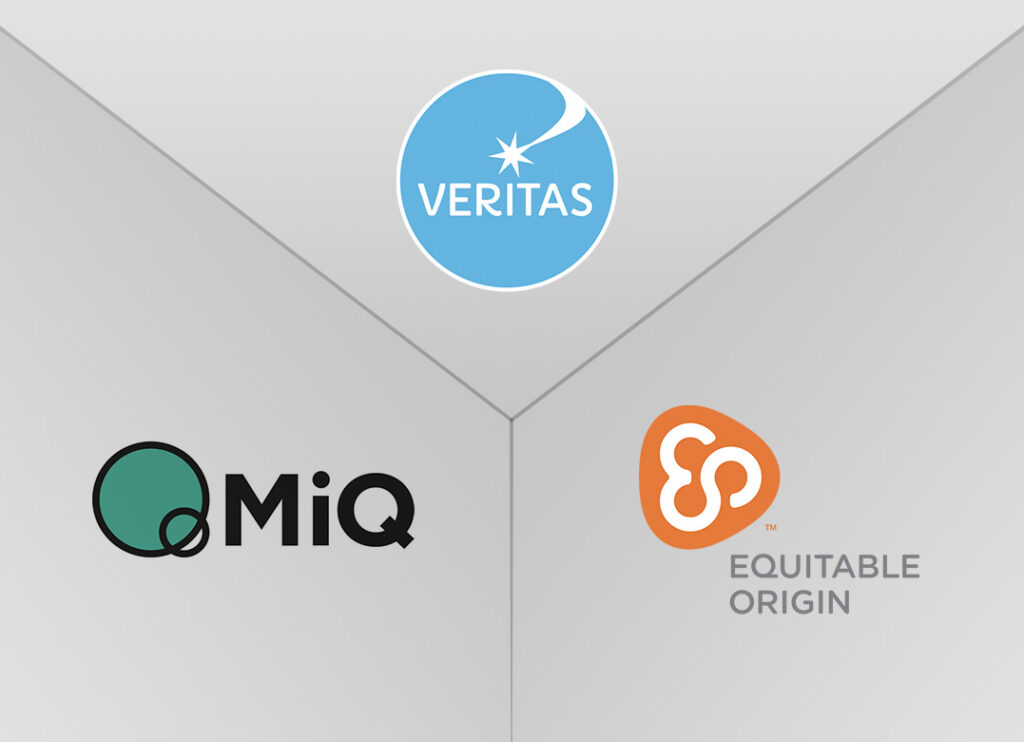Chesapeake recently achieved certification of its legacy Marcellus operations under the MiQ methane standard and the EO100™ Standard for Responsible Energy Development, which cover a broad range of environmental, social and governance (ESG) criteria. The company previously announced the certification of its Haynesville operations in December 2021 and is the first company to achieve Grade “A” ratings (the highest rating a company can earn) from MiQ across two major shale basins.
This certification further expands Chesapeake’s responsibly sourced gas (RSG) portfolio, which the company will continue to increase through 2022. By year end, we anticipate achieving certification of our recently acquired position in the Marcellus, resulting in 100% independent certification for produced and marketed volumes across our two industry leading gas plays.
Chesapeake also recently announced updates to its emissions reduction efforts as we work to achieve net zero direct Scope 1 emissions by 2035. The company has installed more than 2,000 continuous methane emission monitoring devices and retrofitted 15,000 pneumatic devices across its operations in 2021 and 2022. As part of our pneumatic device retrofit, all operated new facility construction is engineered to be 100% vent free using electric device technology, instrument air and vent capture systems. In addition, we executed an agreement to implement aerial Gas Mapping LiDAR scans to detect and quantify emissions multiple times per year across the entirety of our assets.
We also partnered with Veritas: A GTI Differentiated Gas Measurement and Verification Initiative to accelerate actions to reduce methane leakage from natural gas systems. The effort is a collaboration between scientists, academics, environmental organizations, certification agencies and industry experts to help ensure emissions reductions are measured and communicated in a consistent, credible and transparent way.
“As a leading natural gas producer, Chesapeake has a responsibility to both reduce our emissions and be part of the larger industry solution working toward a lower carbon future,” said Brian Woodard, Director of Government & Regulatory Affairs at Chesapeake. “Credible measurement and standardization of methane emissions are needed to more accurately understand our emissions profiles and evaluate the innovative solutions that are key to our emissions reduction plans.”
With a global push to reduce emissions, many new technologies and solutions are available with limited measurement of their effectiveness. Veritas is working to bridge this gap, convening diverse stakeholders to develop technical protocols and an accepted transparent methodology to quantify methane emissions (specifically, methane emissions intensities). Using this methodology, the industry will have a consistent means for assessing the effectiveness of technologies and solutions used to reduce methane emissions.
“All of these emissions reduction initiatives are working toward the same goal — affordable and reliable energy at the lowest carbon footprint,” added Woodard.

“As a leading natural gas producer, Chesapeake has a responsibility to both reduce our emissions and be part of the larger industry solution working toward a lower carbon future,” said Brian Woodard, Director of Government & Regulatory Affairs. “Credible measurement and standardization of methane emissions are needed to more accurately understand our emissions profiles and evaluate the innovative solutions that are key to our emissions reduction plans.”